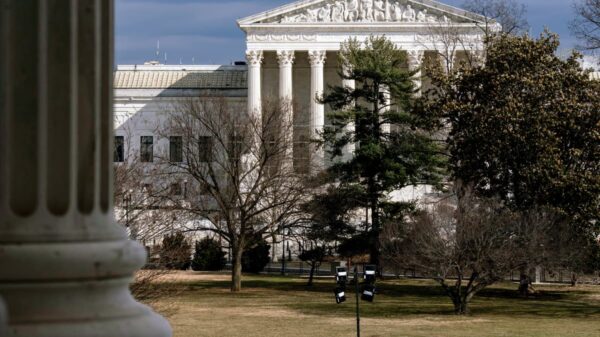WASHINGTON (AP) — As Republicans in Congress advance a sweeping tax and spending cut bill, the residential solar industry faces a potential setback. Will Etheridge, CEO of Southern Energy Management in Raleigh, North Carolina, warned his 190 employees that deep cuts to clean energy tax credits could lead to job losses. “I’m telling you that because you deserve transparency and the truth — even if that truth is uncomfortable,” Etheridge wrote.
The proposed legislation in the House aims to dismantle clean energy incentives, notably ending a 30% tax credit for rooftop residential solar by the end of the year. This credit, extended into the next decade by the Biden administration’s Inflation Reduction Act, is now under threat. Former President Donald Trump has criticized these tax credits as part of a “green new scam” that improperly shifts taxpayer subsidies to support the “globalist climate agenda” and renewable energy sources like wind and solar.
Impact on the Solar Industry
The bill’s potential impact on the solar industry is significant. Businesses and analysts predict that the GOP-backed legislation could reverse the sector’s growth and result in widespread job losses. “The residential solar industry is going to be absolutely creamed by this,” stated Bob Keefe, executive director of E2, a business group advocating for pro-environment policies.
In Chapel Hill, North Carolina, Etheridge observed the installation of solar panels on a local home, a scene that might become less common if the bill passes. His company, Southern Energy Management, has been a part of North Carolina’s burgeoning clean-energy sector, which has seen over $20 billion in investments in recent years.
Political Dynamics and Reactions
The bill, dubbed the “Big Beautiful Bill” by Trump, targets renewables broadly, phasing out tax credits for utility-scale solar and wind. However, the residential solar credit faces a more immediate cut. Despite lobbying efforts from industry leaders like Etheridge, the bill has gained traction, with only a few Republican senators, including Thom Tillis of North Carolina, opposing it. Tillis, who will not seek reelection after Trump indicated support for a primary challenger, was one of three Republicans to vote against the measure.
Etheridge anticipates that losing the tax credit will force him to lay off 50 to 55 employees. He described the elimination as a “bait and switch,” noting that he had invested in his business based on the stability of these credits. “I made a decision from being an employee to taking out a loan from my grandmother to buy into my business and put my house on the line,” he said.
Economic and Environmental Implications
Critics of the tax credits, like Adam Michel, director of tax policy studies at the Cato Institute, argue that businesses reliant on federal subsidies should reassess their viability. “If you require a money-spigot from Washington to make your business viable, it probably shouldn’t have been in business in the first place,” Michel remarked.
However, the broader implications of the bill are already being felt. E2 experts reported earlier this year that $14 billion in clean energy investments nationwide had been postponed or canceled in anticipation of the legislative changes. The Senate’s version of the bill, passed on Tuesday, removes a tax on some wind and solar projects and allows utility-scale projects some time to begin construction before phasing out tax credits.
Industry Response and Future Outlook
Karl Stupka, president of NC Solar Now, a Raleigh-based company employing about 100 people, expressed concern over the bill’s focus. “They took it away from every average American normal person and gave it to the wealthier business owners,” he said, noting that 85% of his business is residential work. Stupka predicts a rush to complete solar installations before the credit ends, followed by significant layoffs and a “trickle-down” effect on related jobs.
As the industry braces for change, companies like Southern Energy Management and NC Solar Now are exploring ways to adapt. Etheridge mentioned the need to diversify his business to mitigate the impact of the lost credits. Meanwhile, the debate over the bill continues, with stakeholders closely monitoring its progress and potential consequences for the renewable energy sector.
The Associated Press receives support from the Walton Family Foundation for coverage of water and environmental policy. The AP is solely responsible for all content. For all of AP’s environmental coverage, visit AP News.






































































